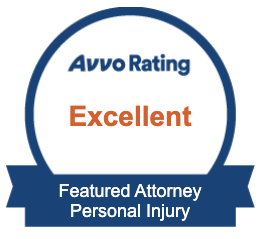Petoskey Product Liability: Protecting Your Rights
- May 8, 2024
- 6 min read
Updated: Jan 17, 2025

Did a defective electric kettle injure you? Is your Instapot malfunctioning and causing burns? Did a faulty baby stroller cause your child harm?
Contact our attorney to discuss your case and learn more about your legal options for product liability.
Understanding Product Liability
Product liability refers to the legal responsibility of manufacturers, distributors, suppliers, retailers, and others involved in a product’s production and distribution chain for any harm caused by that product. This area of law holds these parties accountable for ensuring that the products they bring to market are safe for their intended use.
Different Types of Product Defects
Since product liability is a broad area of law, various types of product defects can give rise to a claim. Some common types include design defects, manufacturing defects, and marketing defects. Let’s delve into each of these in more detail.
Negligent Manufacturing
Negligent manufacturing refers to a defect that occurs during the production of a product. This defect can arise due to faulty materials or errors in the assembly process, leading to an unsafe product.
For example, if a car’s brake system is incorrectly installed and fails while driving, causing an accident and injuries, this error could be considered a case of negligent manufacturing. Another common example would be an instant pot with a faulty wiring system that overheats and causes a fire.
Flawed Design
Unlike manufacturing defects, design flaws refer to a product design defect. This error means that even if the product is manufactured perfectly, it will still pose a risk to users due to its flawed design.
A known example of this defect would be the nylon bar incorporated in most above-ground pools. These bars are made to support the pool’s weight. However, children could use them as makeshift steps to access the pool, causing them to fall, drown, or sustain injuries.
Insufficient Warning
Insufficient warning labels or instructions refer to the lack of proper warnings or instructions that could lead to harm. This defect is most commonly seen in products with inherent dangers, such as power tools, medicines, and chemicals.
For instance, if a prescription medication does not warn about possible side effects when taken with other medicines, and the patient suffers harm due to the interaction, this incident could be considered an insufficient warning defect.
What Are the Elements of Product Liability Cases?
In a product liability case, several key elements must be established to hold a manufacturer or other parties in the distribution chain liable for injuries or damages caused by a defective product.
These elements may vary slightly depending on the jurisdiction and the legal theory being pursued (such as negligence, strict liability, or breach of warranty), but generally include:
The defective product: The plaintiff must demonstrate that the product was somehow defective. This defect could be due to a product design, manufacturing, or labeling flaw.
Injury or damage: The plaintiff must prove they suffered an injury or incurred damages from using the defective product.
Causation: The plaintiff must establish a causal link between the defect in the product and the injury or damage suffered.
Damages: Finally, the plaintiff must quantify the damages they have suffered due to the defective product. This element could include medical expenses, lost income, pain and suffering, property damage, or other economic and non-economic losses.
What Are the Laws Regarding Product Liability and Defects in Michigan?
In Michigan, product liability cases fall under civil law, and the statute of limitations for filing a claim is three years from the date of injury or discovery of the defect. The state also follows comparative negligence laws, meaning that parties can be liable for their proportionate share of fault.
In terms of recoverable damages, claimants can recover a reasonable amount of economic (financially impacting) damages so long as they can support them with tangible proof. Claimants can also recover up to $280,000 for non-economic (not financially impacting) damages. The non-economic damages can reach up to $500,000 if the case involves the death of the victim.
Hiring an experienced Petoskey product liability attorney is crucial if you believe you have a product liability claim in Michigan. These cases can be complex and require extensive legal knowledge, so working with someone who has successfully handled similar cases is essential.
Legal Remedies for Defective Products in Petoskey
Several legal avenues exist for compensation for injuries caused by defective products in Petoskey. Here are some of the common remedies that may be available to you.
Negligence
Negligence is a typical legal theory for product liability cases. There are several elements to proving negligence in a product liability case, such as the following:
Duty of care: The manufacturer or other liable party had a duty to ensure the product’s safety and warn users of any potential hazards.
Breach of duty: The manufacturer breached their duty by producing or distributing a defective product.
Direct cause: The defective product caused the plaintiff’s injuries or damages.
Sustained damages: As previously mentioned, the plaintiff must demonstrate they suffered damages due to the defective product.
Strict Liability
Strict liability is a legal doctrine that holds manufacturers strictly liable for injuries or damages caused by their products, regardless of whether they were negligent. This theory is often used in product liability cases, shifting the burden of proof from the plaintiff to the manufacturer.
For example, if a defective laundry machine injures someone, they only need to demonstrate that the defective product caused their injuries. The individual does not have to prove that the manufacturer was negligent in producing or distributing the product since manufacturers have the inherent duty to ensure their products’ safety.
Breach of Express Warranty
Express warranty means any written or oral statement, promise, or other affirmation of fact made by a seller about the product’s quality and characteristics. If the product does not meet these promises, it is considered a breach of express warranty.
In a product liability case, the plaintiff could claim that they relied on the manufacturer’s express warranty when purchasing and using the product and that this warranty was breached, causing them harm.
Breach of Implied Warranty
Unlike express warranties, implied warranties are not explicitly stated but assumed to be a part of any product purchase. These warranties include the implied warranty of merchantability (the product is fit for its intended purpose) and the implied warranty of fitness for a particular purpose (the product will meet specific needs or requirements).
The manufacturer may be held liable for any resulting injuries or damages if a defective product does not fulfill these implied warranties. However, these theories can be confusing and complicated, so it’s best to discuss your legal options with an experienced product liability attorney.
Filing a Claim for Product Liability in Petoskey, Michigan
Filing a product liability claim in Petoskey, Michigan, involves several important steps:
Get medical help immediately: It’s essential to seek medical attention immediately after suffering harm from a defective product. Not only will this ensure your well-being but it also provides evidence of your injuries and their severity.
Collect evidence: Document the scene where the accident occurred, the product itself, and any relevant physical injuries or property damage resulting from the defect.
Contact an attorney: A skilled Petoskey product liability attorney can help navigate the complex legal process and protect your rights.
File a claim with the manufacturer: Most manufacturers have a designated department for receiving and processing product liability claims. Ensure you have all your evidence and medical records to support your claim.
Consider a settlement offer: The manufacturer may offer you a settlement to avoid going to trial. Your attorney can help evaluate the offer and negotiate on your behalf for fair compensation.
Go to trial if necessary: If both parties can reach a reasonable settlement, your case will go to trial, where you and your attorney will present evidence and arguments to prove the manufacturer’s liability.
Understanding the Michigan Consumer Safety Laws
There are numerous laws covering consumer product safety in Michigan. Some laws even pertain to specific products, such as toys, cribs, and electronics. Here are some essential laws you need to know:
You can file a case for deceptive statements made by the seller, such as false claims about a product’s safety.
Failure to disclose a material fact or withhold information about a product’s safety can also lead to liability.
Causing coercion or duress to prevent a consumer from exercising their rights or remedies (i.e., issuing threats if they report an injury caused by a product) is subject to penalties.
The court may enforce a cessation of business if a company is found to distribute unsafe products continuously.
Schedule a Consultation With Our Petoskey Legal Counsel
Product liability is a complex area of law, and we’re here to unravel the confusion. Our team at MichiganLawsuit.com can help you make sense of your legal rights and options if you’ve been injured due to a defective product. Schedule a consultation with our experienced attorneys in Petoskey today.







